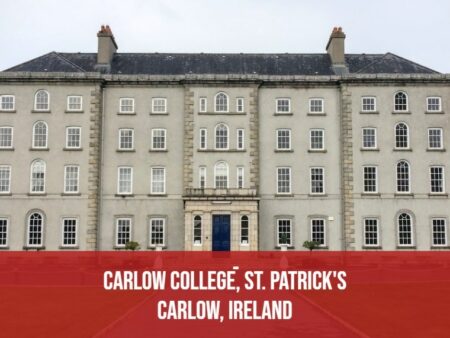Outgoing Exchange Program
Testimonials
How to Apply
STEP 1: CHOOSE A PROGRAM
Below, you’ll find a list of FMU’s exchange partners, linking to a short description of each institution, the semesters and courses available for study and contact information for your FMU liaison – the person who will steer you through the application and registration process and help you find housing at your host school. Feel free to contact the liaison or the International Program director if you have any questions. Also, be sure to consider the language of instruction for each program; although most of our partners offer courses in English, some offer instruction in native languages as well. Here is a chart with a quick overview of all the programs offered.
STEP 2: APPLY FOR THE PROGRAM
Students wishing to participate in FMU’s exchange program must submit an application to the International Studies Committee by the deadlines indicated below. The application form can be submitted below or you can contact the program liaison for a copy.Typically, the committee will consider only those students who have completed 30 semester hours at FMU with at least a 2.7 GPA. Complete and return your application and all supporting materials to either of the coordinators before the indicated deadline. Because exchange openings are limited and competitive, applying to the program does not guarantee acceptance by FMU’s International Studies Committee or by the host institution.
A complete application will consist of:
- A completed application form
- A personal essay (300-500 words) addressing:
- Why you are interested in pursuing a study abroad program and how it will benefit your further education and/or desired career.
- If you have previous experience traveling on your own.
- How you have been exposed to another culture, other than your own.
- Previous life experiences that demonstrate a suitable level of independent initiative and ability to take care of yourself, while abroad.
- Specify which of the following ways you plan to use to support yourself while studying abroad:
- Employment
- Loans
- Other
- Any additional financial concerns that you may have not addressed in your statement. Please be thorough in your response as this may be used to assess your eligibility for travel funding.
- Two letters of recommendation from FMU faculty members, particularly modern language faculty, if applicable—but not program liaisons or other members of the International Studies Committee.
- A copy of your passport (or confirmation that you are acquiring one)
Application deadlines:
For Spring Semester: October 4, 2024
For Fall Semesters: March 3, 2025
STEP 3: GET A PASSPORT
STEP 4: APPLY TO THE HOST INSTITUTION
After being accepted to FMU’s exchange program, you will receive an information packet with forms you’ll need to complete. These may include some or all of the following:
- An Assumption of Risk and Liability form
- A Statement of Health form
- Medical Insurance and Emergency Contact forms
- An FMU Course Transfer document
When filling out any of these forms, be sure to list a permanent address, as some materials may be mailed to you during our winter or summer breaks.
STEP 5: MEET WITH YOUR LIAISON
STEP 6: COVERS YOUR BASES
REMINDERS
The courses you take through an international exchange usually count toward your FMU degree requirements, and because FMU typically offers Ready to Experience Applied Learning (REAL) funding to help defray the cost of air travel, studying abroad need not be more expensive than studying here!Also, you may now participate in exchanges and travel courses sponsored by Coastal Carolina University. To learn more, explore this site or contact one of FMU’s International Program coordinators.
Note that passport, visa, and other regulations can change from year to year and that the responsibility for procuring a visa and other documentation ultimately rests with each student. FMU cannot be held liable for loss of personal items (from theft, fire, etc.), nor for missed connecting flights, hospital stays, etc., during an exchange.
I encourage you to avail yourself of these exciting opportunities and will gladly meet with you and your family to discuss them!


















